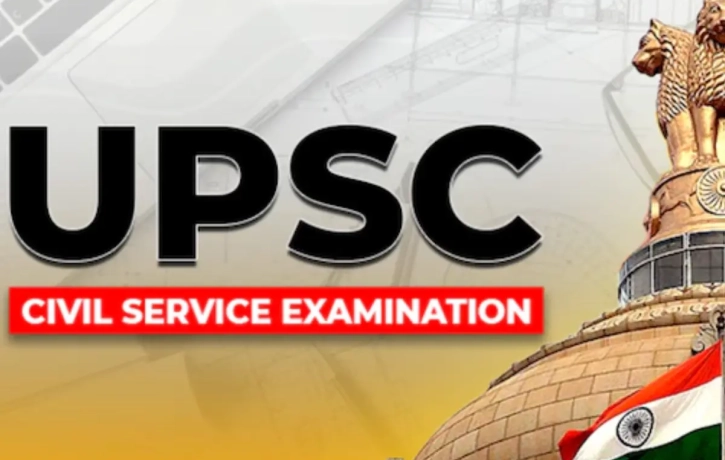UPSC, The Union Public Service Commission stands as the cornerstone of India’s bureaucratic structure. Established in 1926, it serves as the central recruiting agency for the Government of India, conducting a rigorous selection process to identify the most qualified individuals for various prestigious positions. This esteemed organization plays a vital role in ensuring efficient administration and effective governance across the nation.
The UPSC Exam, A Three-Tiered Gauntlet
The UPSC Civil Services Examination (CSE) stands as the flagship exam conducted by the commission. Cracking this highly competitive exam is considered a significant accomplishment, paving the way for a distinguished career in the Indian Civil Services. The selection process itself is a three-stage hurdle designed to assess a candidate’s knowledge, analytical abilities, and suitability for a life dedicated to public service.
Preliminary Examination (Prelims) This objective-based test serves as the initial screening stage. Comprised of two papers – General Studies Paper I (GS Paper I) and General Studies Paper II (CSAT) – it evaluates a candidate’s understanding of diverse subjects like Current Affairs, Indian Polity & Economy, History, Geography, Science & Technology, Environment & Ecology, Reasoning Ability, and Comprehension. Qualifying the Prelims is mandatory to proceed to the next stage.
Main Examination This in-depth, descriptive exam delves deeper into a candidate’s knowledge and writing skills. It consists of nine papers
1. Essay Designed to assess the candidate’s writing ability and clarity of thought.General Studies Papers I-IV These papers cover a broad spectrum of subjects, including Indian Heritage & Culture, World History, Indian and World Geography, Indian Polity & Constitution, Social Justice & Governance, Economic Development, Internal Security & Disaster Management.Optional Subject 2.Papers I & II Candidates have the freedom to select one optional subject from a comprehensive list encompassing History, Public Administration, Sociology, Literature, Science subjects, and more. This allows them to showcase their expertise in a specific domain.
2. Interview/Personality Test The final stage assesses a candidate’s personality, leadership qualities, mental alertness, and communication skills. This face-to-face interaction with the UPSC board determines their suitability for a career in civil service, evaluating their ability to handle pressure, navigate complex situations, and think critically.
Eligibility for the Exam Charting Your Course
To embark on this challenging yet rewarding journey, Indian citizens between the ages of 21 and 32 (with age relaxation for reserved categories) holding a bachelor’s degree from a recognized university are eligible to apply for the UPSC CSE. The number of attempts allowed is limited, with six attempts for the General category and nine attempts for candidates belonging to Other Backward Classes (OBC), Scheduled Castes (SC), and Scheduled Tribes (ST).
The Allure of UPSC, Beyond the Prestige
While the prestige associated with cracking the UPSC exam is undeniable. The true allure lies in the unique blend of opportunities it offers
1.Challenge and Continuous Learning The demanding exam process and diverse job profiles of civil servants necessitate continuous learning and self-improvement. This intellectual stimulation keeps individuals engaged and pushes them to excel throughout their careers.
2.Serving the Nation Civil servants play a pivotal role in shaping the country’s future. They are entrusted with the responsibility of formulating policies, implementing government programs, and ensuring public welfare. This allows them to contribute meaningfully to national development and social progress.
3.Respect and Recognition UPSC officers command immense respect within society and enjoy a well-structured career path with excellent perks and benefits. The work-life balance offered is often more conducive to long-term well-being compared to certain private sector careers.
Mastering the UPSC Exam, A Strategic Approach
Given the demanding nature of the UPSC exam, a well-defined strategy and dedicated preparation are crucial for success. Here are some key steps to consider
1. Building a Strong Foundation Develop a solid understanding of the exam syllabus and core subjects. This involves referring to recommended books, studying relevant study materials, and attending preparatory courses if needed.
2. Time Management is Key Practice time management skills to ensure you complete the exam papers within the allotted time frame. The ability to manage pressure and strategically approach each question is essential.
3. Staying Abreast of Current Affairs Maintain a consistent focus on national and international current events. Regularly read newspapers, watch informative news channels, and analyze contemporary issues to stay updated.
4. Sharpening Your Answer Writing Skills Regularly practice writing concise, well-structured, and content-rich answers. This can be done through mock tests, past year papers, and essay writing exercises.
5. Mock Tests and Previous Years’ Papers Taking mock tests and analyzing previous years’ papers is crucial for understanding the exam pattern, marking






